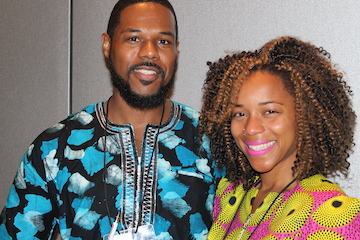The Race and Cultural Experiences (RACE) Research Lab
The Race and Cultural Experiences (RACE) Research Lab studies predictors of mental health use among diverse communities. More recently, projects have explored the role of social, cultural, and contextual factors on mental health. Current research goals are to: (1) elucidate correlates and predictors of child mental health services utilization among diverse populations, (2) identify mechanisms of help-seeking and (3) develop interventions to improve mental health literacy and adherence to treatment.

The RACE Lab's work have been published in peer-reviewed journals and featured in news stories. Additionally, our research has been presented nationally at conferences such as the American Psychological Association, Association of Black Psychologists, Anxiety and Depressions Association of America, International Convention of Psychological Science, and Association for Behavioral and Cognitive Therapies. Connect with the RACE Lab on Twitter @Turner_RACE_Lab.
Director: Dr. Erlanger A. Turner, Ph.D.